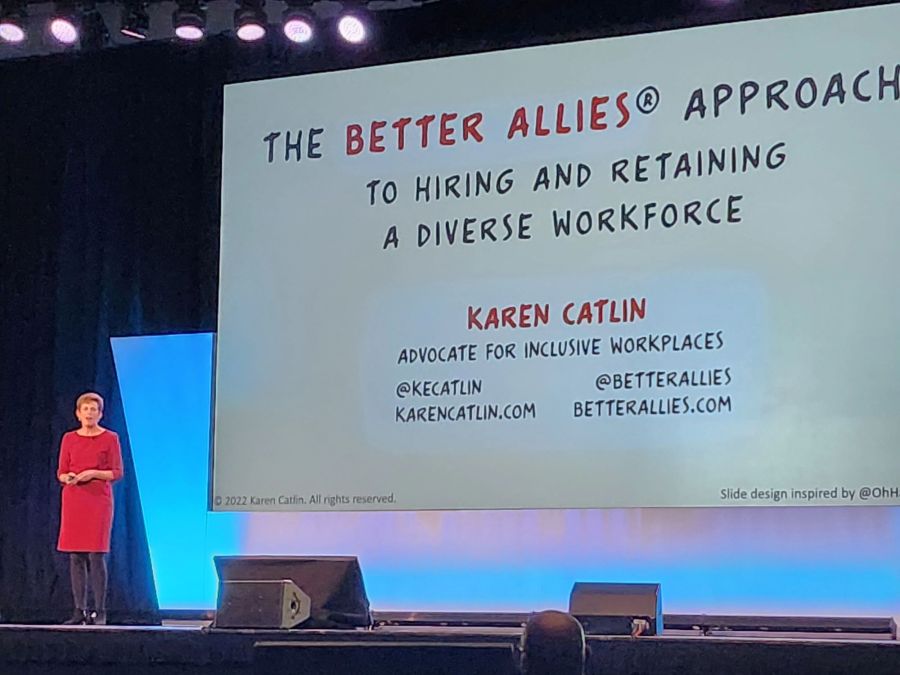Attracting diverse talent getting harder, say higher ed IT leaders

Colleges and universities have long struggled to lure tech talent away from the private sector, but the challenge of attracting and retaining staff is only getting harder, attendees at an Educause conference in Denver said Wednesday.
IT staff in higher ed are feeling tired, stressed and burned out, with large numbers reporting plans to leave their jobs, Mark McCormack, Educause’s senior director of research and insights, said during a session on workforce trends. McCormack said that in March 2022, a poll of Educause members indicated that 55% were strongly considering leaving their role in the near future, already had plans to leave, or were making plans for retirement.
While the pandemic spurred on some universities to expand their IT teams, many staff feel they are stretched too thin, he said. Stress levels and a lack of work-life balance are major reasons that staff are planning to leave, McCormack said.
In a 2021 poll, 76% of Educause members said their work-related stress had increased since the start of the pandemic, and a majority said they did not think it likely that their jobs would become less stressful over the coming year. Among staffers with flexible work arrangements, however, the survey found that stress levels were lower, McCormack said.
Offer more flexibility
Flexibility in the workplace is an attractive incentive that higher education institutions can offer to attract and retain IT staff, McCormack said. While many employees want options to work remotely, they may also be seeking flexibility in their schedules or the kinds of tasks they perform, McCormack said.
Some Educause attendees acknowledged the attractiveness of flexible work arrangements, but questioned the feasibility of offering these perks to all staff. Not everyone can perform their tasks remotely or at a time of their choosing, and giving some employees this flexibility but not others can create tension, they said.
In instances where it is not possible to offer staff remote working options or flexible schedules, McCormack encouraged university leaders to talk to their staffs about long-term career goals and offer training to help them transition into new roles.
Off-putting job descriptions
As schools consider how best to attract and retain new talent, Karen Catlin, a former tech executive turned career coach, urged IT leaders at the conference to consider how the language of their job advertisements might be discouraging women and people of color from applying.
Catlin, who is the author of several books on inclusivity in tech and runs the Better Allies Twitter account, shared that while men are likely to apply to a job if they meet 50-60% of the qualifications, women are likely to apply only if they meet all of them.
Masculine-sounding descriptors such as “competitive” and “aggressive,” and phrases such as “right-hand man” should be avoided, as they could be off-putting to many applicants, Catlin said.
If a qualification isn’t actually required, drop it from the job description, Catlin said. She urged conference attendees to also consider that requiring internship or voluntary experience may exclude applicants from lower income backgrounds who cannot take on low or unpaid work.
Transparency about the application process can also level the playing field for candidates who may need to make child-care arrangements or perform better if they are able to prepare in advance, Catlin said.
Both Catlin and tech journalist Kara Swisher, who also spoke at the Denver conference, referred to research demonstrating that diverse teams in tech are more successful.
In a lively fireside chat, Swisher said she decided to step away from hosting and organizing Vox Media’s Code Conference this year after more than two decades because she had tired of speaking to the mostly rich white men who lead big tech companies.
“We do ourselves a disservice when we have a homogenous group of people running everything and making decisions,” Swisher said. “Talent is everywhere, but I think we pretend it’s not. We think it’s in a small group of people who look the same, and that’s just not true.”




